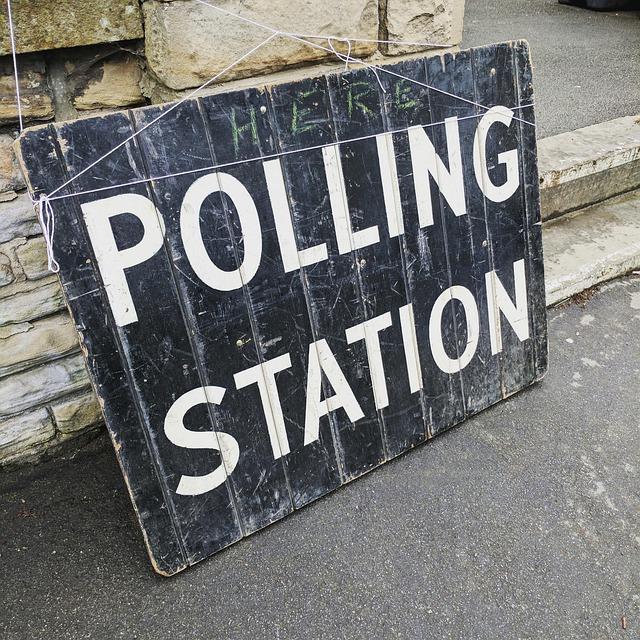How Recent Election Results Are Transforming the Workplace Landscape
Recent electoral outcomes are resonating well beyond political arenas, significantly influencing workplace environments across industries. From evolving labor laws and employee protections to adjustments in business regulations and economic forecasts, these political shifts are compelling both employers and employees to rethink the future of work. This comprehensive analysis explores how election results are reshaping labor relations, corporate policies, and employee engagement, providing valuable perspectives for organizations navigating this dynamic environment.
Analyzing Voter Participation Patterns Among Workforce Groups
Emerging research highlights a clear link between workforce composition and voter turnout, revealing how workplace settings can either encourage or hinder civic involvement. Younger generations, especially those aged 18 to 34, have demonstrated increased electoral participation, often motivated by employer-led initiatives such as voter education campaigns and offering flexible hours on election days. In contrast, sectors with a high percentage of shift-based roles-like hospitality and manufacturing-continue to experience lower voter engagement due to inflexible schedules and limited access to polling locations.
Notable workforce segments influencing voting behavior include:
- Generation Z and Millennials: Engagement rises when employers actively promote political literacy.
- Shift Employees: Participation declines linked to rigid shift patterns.
- Telecommuters: Greater schedule autonomy correlates with higher voting rates.
| Workforce Segment | Change in Voter Turnout (2020-2024) | Contributing Factors |
|---|---|---|
| Remote Workers | +14% | Flexible hours, expanded mail-in voting options |
| Shift-Based Employees | -6% | Inflexible shifts, limited polling access |
| Office-Based Young Professionals | +9% | Workplace voter drives, incentives |
Election-Driven Changes in Workplace Regulations and Employee Protections
The latest election cycle has sparked a surge in legislative reforms across various states, poised to redefine workplace standards. A prominent development is the intensified focus on employee rights, with many newly elected officials championing stronger enforcement of anti-discrimination statutes and broader access to paid family and medical leave. Organizations are now prompted to reassess their compliance strategies, especially in industries undergoing rapid demographic shifts, to ensure inclusivity and safeguard worker protections.
Fiscal policy adjustments are also influencing compensation frameworks. Several regions are advancing proposals to raise minimum wages and enhance unemployment benefits, which directly impact employer payroll expenses and benefit offerings. The table below summarizes key regional policy trends and their implications for businesses:
| Region | Policy Emphasis | Business Impact |
|---|---|---|
| Pacific Northwest | Minimum wage hikes | Increased labor costs |
| Mid-Atlantic | Expanded paid family leave | Greater scheduling flexibility |
| Southern States | Enhanced anti-discrimination enforcement | Updated diversity training |
| Mountain West | Gig economy worker protections | Reclassification of contractors |
- Labor advocates praise these reforms for promoting equitable workplaces.
- Corporate leaders express concerns about operational adjustments and rising expenses.
- HR professionals must remain vigilant to swiftly adapt to evolving legal requirements.
Managing Political Diversity in the Workplace to Enhance Collaboration and Respect
Modern workplaces mirror the broader political spectrum, with diverse viewpoints becoming more visible following recent elections. To maintain a harmonious and productive environment, companies need to implement clear policies that encourage respectful communication and discourage divisive discourse. Fostering empathy and open-mindedness among employees not only sustains morale but also fuels innovative thinking through the integration of varied perspectives.
Structured initiatives can effectively balance inclusivity with operational efficiency. For example, organizations might establish neutral platforms such as moderated forums or anonymous suggestion boxes where employees can express political opinions safely. Below is an overview of actionable tactics to navigate political diversity:
- Craft explicit guidelines on political expression at work
- Equip managers with training to identify and mitigate political conflicts
- Encourage team-building centered on common objectives rather than ideological differences
- Maintain transparent communication to build trust and reduce misunderstandings
| Issue | Approach | Anticipated Result |
|---|---|---|
| Polarized debates | Dedicated discussion spaces | Lowered tensions, improved empathy |
| Managerial partiality | Bias-awareness workshops | More equitable leadership |
| Communication gaps | Consistent transparent updates | Enhanced trust, smoother collaboration |
Strategies for Employers to Encourage Thoughtful Civic Participation Among Employees
Employers hold a crucial position in fostering a workplace culture that empowers employees to engage meaningfully in civic matters. Promoting open, nonpartisan dialogue about current events and elections without endorsing specific political stances is essential. Providing access to impartial resources-such as unbiased voter guides and information on local ballot measures-enables staff to make well-informed choices. Additionally, offering flexible scheduling on election days helps eliminate voting barriers, reinforcing a culture that values democratic participation. Transparent communication policies that respect diverse viewpoints further contribute to an inclusive environment.
To deepen civic engagement, companies can implement initiatives like panel discussions featuring community leaders or workshops on media literacy to enhance critical evaluation skills. Volunteer programs linked to local organizations also strengthen employees’ connection to their communities beyond the workplace. The following table outlines effective employer practices for promoting informed civic involvement:
| Initiative | Impact |
|---|---|
| Disseminate unbiased voter information | Improves knowledge, curbs misinformation |
| Flexible work hours on election days | Boosts voter participation |
| Host civic education workshops | Enhances critical thinking on political topics |
| Create respectful dialogue forums | Fosters inclusivity, reduces workplace conflict |
| Encourage community service involvement | Strengthens local engagement and activism |
Final Thoughts
As the ramifications of recent elections continue to unfold, their influence on workplace culture and policies remains a vital area for ongoing attention. Expert insights suggest that changes in political leadership and legislation will significantly affect labor standards, employee rights, and corporate governance in the years ahead. Both businesses and their workforce must stay informed and agile to successfully adapt to these transformations. Continuous monitoring and analysis will be key to understanding how the shifting political climate shapes the future of work.













